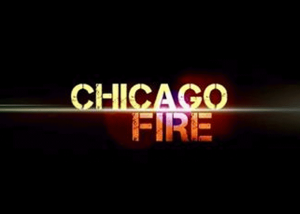I am a Story/Career Consultant for writers. One of the biggest story notes that I give is about understanding the significance of the “all is lost” moment. Your “all is lost” moment is an essential step on your journey and should lead to your achievement. In story and in life, when we hit our “all is lost” moment, it is the moment when we are as far away as possible from achieving the goal. We hit rock bottom. Our world caves in. In fiction, this moment happens at the end of your second to last act. After hitting rock bottom, a light goes on for the hero. She hits an “aha” moment that helps her realize what she has to do to achieve the goal. Then, in the last act, she takes an action that leads to the moment that symbolizes her achievement of the goal.
In life and in story, these kinds of moments are linked. When we take actions toward our goals and hit obstacles, we have the choice of falling victim to the experience or getting up and continuing our mission. In fiction, it is monumental that we understand that the hero’s actions lead to their obstacles and the obstacles lead to the hero’s point of no return, the “all is lost.” All of this should link back to the goal. We should understand that when the hero hits the “all is lost,” she is as far away from her goal as possible. When story does not work, it’s often because the hero’s goal is unclear so when she gets to her “all is lost,” we don’t feel the “rock bottom” moment and understand how the light goes on for her there, leading to her solution.
By understanding that the “all is lost” moment in fiction and in life is what propels us toward our goal instead of away from it, we can look at our greatest falls in a whole new way. We can see them as a beginning, not an ending. We can recognize their value and know that the very moment we feel farthest from our goal, can lead to our transcendence and awareness of what we have to do to achieve our goal.
I believe that there are really two “all is lost” moments in story. The first is the trigger incident that leads the hero from the old world into the new. It presents a dilemma and the choice that the hero makes in the dilemma defines the goal. So, the journey begins with an “all is lost” feeling and then, on the journey to the goal that resulted from the trigger incident, at the end of the second to last act, they experience the second “all is lost” in an even deeper way,
In the show, THE GOOD WIFE, we see Alicia hit an “all is lost” moment at the beginning when she has to face the betrayal of her husband publicly and deal with the fact that he is going to jail. It is this moment that leads her back to a law career that she had abandoned 13 years before. The purpose of the “all is lost” or trigger moment at the beginning of story is to create empathy for the hero. We feel for Alicia. We know that as a result of her first “all is lost”, she has to solidify a spot for herself in the firm so that she can bring security back to her family. The second “all is lost” is at the end of the second to last act when it feels like she is going to lose the case that could win her a spot in the firm. Then, in hitting this moment, she knows what she has to do to achieve the goal.
In THE AMERICANS, the first “all is lost” moment is when a Russian spy couple fails their mission to get an ex KGB Colonel, who has turned on the Russians, on the boat back to Russia. It is this failure that leads to their episode pursuit of what to do with the hostage. We learn that Elizabeth has a history with the hostage that Philip is not aware of. The Colonel raped her during training. This motivates Elizabeth to want to get rid of their problem by killing the Colonel, versus Philip’s idea of turning him and themselves, over to the Americans. They share the goal of needing to alleviate the problem of having to hide the hostage at their family home with their children, who have no idea their parents are spies. The second “all is lost” moment is when Elizabeth and Philip almost fail. Philip begins to take steps to turn in the hostage over to the Americans behind Elizabeth’s back. Elizabeth does not want to betray her country. This is both a low point in their main goal, and also in their relationship. When Philip realizes that the Colonel hurt Elizabeth during training, he hits his “all is lost.” He kills the hostage without thinking of the consequence.
Now, in fiction, all these moments happen within the framework of story. If the “all is lost” moments are structured well, it elevates the story to a whole new level. We see in the two examples that the “all is lost” moment needs to happen to shine a light for the hero on what she needs to do to achieve the goal.
If we look at our “all is lost” moments in life in the same way, we recognize that hitting rock bottom, can lead us to our moment of enlightenment. We can awaken to the actions we need to take that will lead to our achievement.
My fascination with the “all is lost” moment and how it can move us forward instead of back is what inspired my book, “Change Your Story, Change Your Life: A Path To Success.” The knowledge of this unique story tool helped me see that we can fail forward through understanding the significance of the “all is lost” moment.


